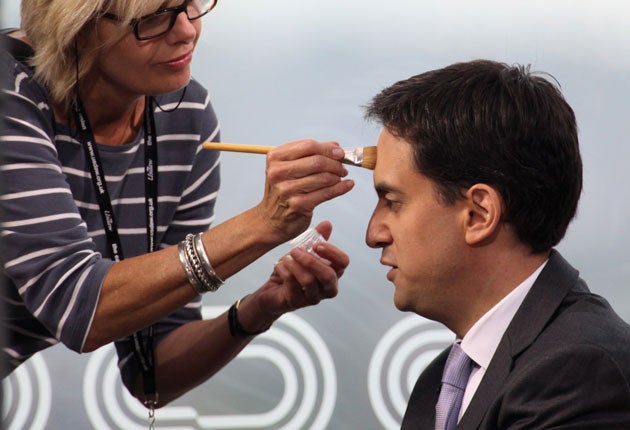Critics round on Miliband's plan to cut tuition fees

Ed Miliband made a pitch for disillusioned Liberal Democrat supporters by promising that the ceiling for tuition fees would be reduced to £6,000 a year – or less – by a Labour government.
But his move was in danger of unravelling last night as confusion grew in Labour ranks over the party's exact policy position on funding for higher education.
The Tories mocked him for a "monumental U-turn" – Mr Miliband and his MPs opposed a rise in fees 10 months ago – student groups reacted angrily and Shadow Cabinet ministers insisted that the party remained committed to a graduate tax.
Tuition fees will rise next year from the current maximum of £3,375 per annum to a top rate of £9,000 – a move that provoked huge student demonstrations last year. Mr Miliband – supported by 21 Liberal Democrat rebels – voted against the increase.
Mr Miliband took the first day of the Labour conference in Liverpool by surprise when he promised that he would not allow fees to rise beyond £6,000, a reduction that would be partially paid for by higher repayments from the best-paid graduates.
He had personally supported a move to a graduate tax during the party's leadership contest and many assumed – although Labour remained opaque on the subject – that that remained its policy preference.
Mr Miliband said his proposed cut would be funded by higher repayments for graduates earning more than £65,000 a year and additional taxes on the financial sector.
He said: "Parents up and down the country are incredibly worried about their sons and daughters. We want to take action to make it easier for people to go to university and not feel burdened down by debt."
The Labour leader admitted yesterday that the promised cap on tuition fees was not a cast-iron commitment for the party's next general election manifesto.
He told BBC1's The Andrew Marr Show that it was a policy "we would do now if we were at an election" and suggested the proposed cap could be set lower than £6,000 by 2015.
Mr Miliband said: "We are very committed to it, the election is three-and-a-half years away. If we can do more by the time of the election we will. But this is an important first step."
Later John Denham, the shadow Business Secretary, said that it was Labour's long-term aspiration to introduce a graduate tax to finance universities.
"That is the direction we have said we always wanted to move in, a fairer system of payment for degrees, for the contribution we ask graduates to make."
Mr Miliband's announcement was designed to attract voters who once backed the Liberal Democrats and students, who traditionally support Nick Clegg's party.
But the National Union of Students condemned the Labour announcement, pointing out that the party had gone into the election pledging not to increase fees. Liam Burns, its president, said: "Simply going back to a position of 'well we're only doubling them' – that's not quite good enough."
Mr Miliband admitted yesterday that the last Labour government had made mistakes on immigration, notably its decision to give workers from Poland and other eastern European states full access to the British labour market.
He said: "I don't think we did get it right, no. I think we got some things wrong."
To tax or to charge
Until 1998, taxpayers met the costs of tuition. All major parties agreed this was no longer affordable as student numbers soared.
Tuition fees
Introduced by Tony Blair's New Labour government. From next year students face maximum annual fees of £9,000 (the average will be about £8,400). Students must start to repay their debts when they earn more than £21,000 per annum.
A graduate tax
Favoured by some senior Labour figures who argue students would not have an immediate debt when they leave college. The NUS has suggested a 20-year tax of between 0.3 per cent and 2.5 per cent of income.
Join our commenting forum
Join thought-provoking conversations, follow other Independent readers and see their replies
Comments
Bookmark popover
Removed from bookmarks